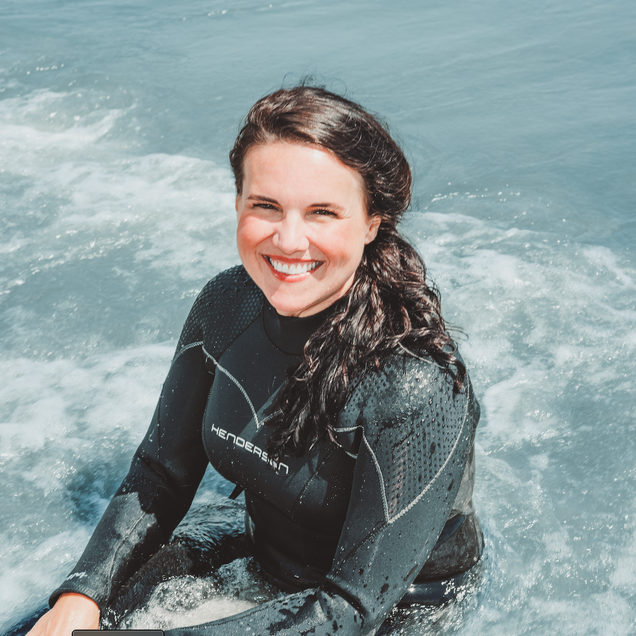
- Title Associate Professor of Biology
- Education Ph.D. University of Texas at Austin
- Web Address http://sites.bu.edu/davieslab/
- Email daviessw@bu.edu
- Area of Interest ecological genomics, population genetics, molecular ecology, coral ecology, climate change, symbiosis
- CV
Current Research
Changing climates and ongoing anthropogenic habitat modifications threaten natural ecosystems worldwide. In response to these threats, a species has four choices: i) remain in the natal habitat but suffer reduced fitness, ii) acclimate to current conditions by modifying their physiologies, iii) adapt to the local environment through natural selection on standing genetic variation, or iv) disperse to new, more favorable environments. Research in the Davies lab studies the potential roles of acclimation, adaptation, and dispersal in an organism’s response to rapid climate change.
Predicting persistence becomes more challenging when a species’ fitness depends upon interactions between multiple partners. For corals, their fitness is tightly coupled with their symbiotic relationship with algae of the family Symbiodiniaceae, and this symbiosis is strongly influenced by increasing seawater temperatures. Research in the Davies lab integrates eco-evolutionary experiments with genomic and environmental data to determine how corals and their symbionts interact with each other and their environments to determine symbiosis outcomes under rapid climate change.
Selected Publications
- Valadez Ingersoll M, Rivera HE, Da-Anoy JK, Kanke MR, Gomez-Campo K, Martinez-Rugerio MI, Metz S, Sweet M, Kwan J, Helman R, Emili A, Gilmore TD, and SW Davies. Cell type-specific immune regulation under symbiosis in a facultatively symbiotic coral (2025) The ISME Journal 19(1): wraf132. https://doi.org/10.1093/ismejo/wraf132
- Aichelman HE, Benson BE, Gomez-Campo K, Martinez-Rugerio MI, Fifer JE, Tsang L, Hughes A, Bove CB, Nieves OC, Pereslete AM, Stanizzi D, Kriefall NG, Baumann JH, Rippe JP, Gondola P, Castillo KD and SW Davies (2025) Cryptic diversity shapes coral symbioses, physiology, and response to thermal challenge. Science Advances 11:eadr5237. http://doi.org/10.1126/sciadv.adr5237
- Grupstra CGB, Meyer-Kaiser KS, Bennett MJ, Andres M, Aichelman HE, Fifer J, Huzar A, Hughes A, Rivera HE, and SW Davies (2024) Holobiont traits shape climate change responses in cryptic coral lineages. Global Change Biology 30:e17578. https://doi.org/10.1111/gcb.17578
- Wuitchik DM, Aichelman HE, Atherton KF, Brown CM, Chen X, DiRoberts L, Pelose GE, Richmond K, Tramonte C, and SW Davies (2024) Photosymbiosis lessens the environmental stress response under a heat challenge in a facultatively symbiotic coral. Scientific Reports 14:15484. https://doi.org/10.1038/s41598-024-66057-2
- Aichelman HE, Huzar A, Wuitchik DM, Schlatter E, Russo J, Haftel N,^Wright RM, Atherton KF, and SW Davies (2024) Symbiosis modulates gene expression of symbionts, but not hosts, under thermal challenge. Molecular Ecology 33(8):e17318. https://doi.org/10.1111/mec.17318
- Valadez-Ingersoll M, Aguirre Carrión PJ, Bodnar C, Desai NA, Gilmore TD and SW Davies (2024) Starvation differentially affects gene expression, immunity, and pathogen susceptibility across symbiotic states in a model cnidarian. Proceedings of the Royal Society B 291: 20231685. https://doi.org/10.1098/rspb.2023.1685
- Grupstra CGB, Gómez-Corrales M, Fifer J, Aichelman HE, Meyer-Kaiser K, Prada C and SW Davies (2024) Integrating cryptic diversity into coral evolution, symbiosis, and conservation. Nature Ecology Evolution 8: 622-636. http://doi.org/10.1038/s41559-023-02319-y
- Davies SW, Putnam HM, Ainsworth T, Baum JK, Bove CB, Crosby SC, Côté IM, Duplouy A, Fulweiler RW, Griffin AJ, Hanley TC, Hill T, Humanes A, Mangubhai S, Metaxas A, Parker LM, Rivera HE, Silbiger NJ, Smith NS, Spalding AK, Traylor-Knowles N, Weigel BL, Wright RM and AE Bates (2021) Promoting inclusive metrics of success and impact to dismantle a discriminatory reward system in science. Plos Biology 19(6): e3001282. https://doi.org/10.1371/journal.pbio.3001282